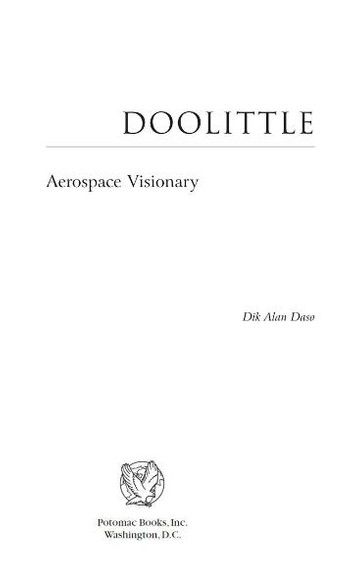| FindBook |
|
有 1 項符合
Dik Alan Daso的圖書 |
 |
$ 299 電子書 | Doolittle
作者:Dik Alan Daso 出版社:Potomac Books Inc. 出版日期:2005-04-30 語言:英文  看圖書介紹 看圖書介紹
|
|
|
圖書介紹 - 資料來源:樂天KOBO 評分:
圖書名稱:Doolittle
On April 18, 1942, Lt. Col. Jimmy Doolittle led a flight of sixteen B-25 bombers off the flight deck of the USS Hornet on one of the most daring raids in U.S. military history, a low-level strike on Tokyo and other Japanese cities. For this heroic act, he received the Medal of Honor. But, as Dik Alan Daso convincingly argues, James H. Doolittle should be remembered as much more than a famous combat pilot. With a doctorate in aeronautics from MIT, he devoted his life to mastering the technical and practical intricacies of the most amazing new invention of his time, the airplane. In 1922, Doolittle became the first person to complete a transcontinental flight across the United States in a single twenty-four-hour period. Later he worked with the Shell Oil Company to develop high-octane aviation fuel to enhance aircraft performance. He also won numerous trophies for his record-breaking high-speed flights, and he developed new instrumentation to assist pilots when flying ôblindö in poor weather. In jet age parlance, Doolittle constantly ôpushed the envelope.ö After holding several major combat commands during World War II, he was appointed a special assistant to the Air Force chief of staff in 1951 and served as a civilian adviser in scientific matters, including the development of ballistic missiles and the fledgling space program. From the early days of aviation to the space age, Daso provides a concise but expansive overview of the rapidly developing field of aviation and chronicles a pioneerÆs tireless efforts to be a visionary for the new era.
|











